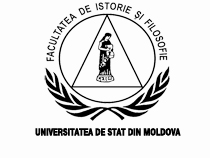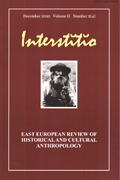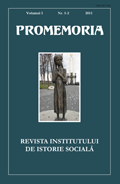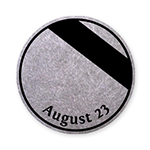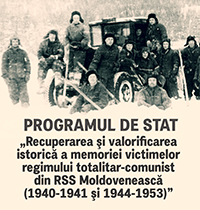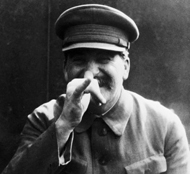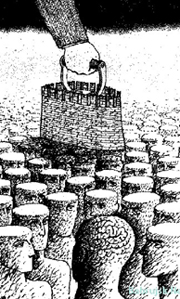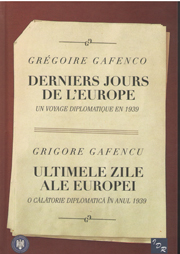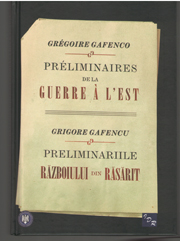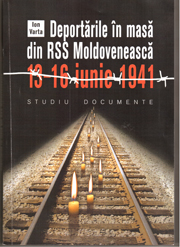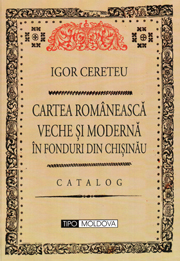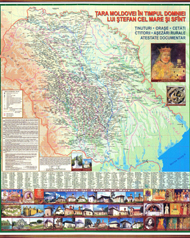NEWS & EVENTS

The INTERNATIONAL COOPERATION PROJECT
Building the European culture of memory, developing democratic values and strengthening European solidarity through research and dissemination of historical knowledge. Cooperation and promotion of best practices between Lithuania and Moldova
The international cooperation project “Building the European culture of memory, developing democratic values and strengthening European solidarity by researching and disseminating historical knowledge. Cooperation and promotion of good practices between Lithuania and Moldova” proposes to contribute to the strengthening of historical memory in Moldovan society by exchanging the best practices between Lithuania and Moldova on researching and disseminating historical knowledge about totalitarian-communist past and promoting democratic values.
The project is implemented in the context of the reaffirmation of authoritarian regimes based on imperial resentments and, as a result, the armed attack on Ukraine with atrocities committed by the Russian Federation army that is a real danger for peace and stability throughout Europe. In the Republic of Moldova, the objectives of total dismantling of reminiscences that oppose democratization and pose a risk of the return or spread of totalitarian propaganda and governance remain equally indispensable to the processes of democratization and European integration.
Activities will bring together partners and participants interested in promoting a culture of historical memory and civic engagement in the Republic of Moldova. The project aims to strengthen respect for historical knowledge, build a European culture of memory, and support human dignity and human rights.
The target group of the project is the young generation – students, MA and PhD researchers, young scholars from universities, museums in the Republic of Moldova in order to develop the skills of historical knowledge and critical thinking necessary to become active and innovative citizens and build a European solidarity and memory culture. The indirect beneficiaries of the projects constitute the entire society of the Republic of Moldova, represented by the organizations of civil society, public institutions, official structures and media institutions.
The experience and knowledge gained in the project will be disseminated through round tables, book presentations and exhibitions inaugurated in public institutions in the Republic of Moldova and Lithuania, with the active involvement of young generation representatives from Chisinau, Balti, Comrat, Vilnius.
The project is implemented by the Centre of Excellence Institute Pro Memoria, in cooperation with The National Museum of History of Moldova (Republic of Moldova) and The Genocide and Resistance Research Centre of Lithuania (Republic of Lithuania).
Period of project implementation: 1 June – 31 October 2022.
The project is financed by the funds of the Development Cooperation and Democracy Promotion Programme of the Ministry of Foreign Affairs of the Republic of Lithuania.
THE PHOTO-DOCUMENTARY EXHIBITION
“CHILDHOOD IN THE GULAG”
INAUGURATED IN LITHUANIA
In his opening speech, H.E. Ambassador Sergiu Mihov indicated the relevance and timeliness of the exhibition in the context of commemorative events held in 2021 in both the Republic of Moldova and the Republic of Lithuania on the 80th anniversary of the first wave of Stalinist deportations.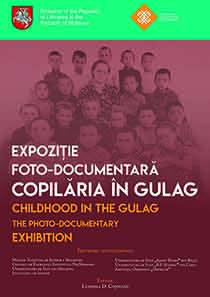
Alexandru Postică, president of the Association of Former Deportees and Political Detainees of Moldova referred to the importance of knowing the history and memory of the victims of the totalitarian-communist regime for today’s society, reiterating the Association’s openness to cooperation with researchers in the field.
The Exhibition “Childhood in the Gulag” presents photo-documentary images that reflect the lives of Bessarabian children sentenced to deportation, famine, Russification, indoctrination and the forced excision from their own families because of the repressive policies of the totalitarian-communist regime in the Moldavian SSR, 1940-1941 and 1944-1953. During the Stalinist deportations in 1941, 1949 and 1951 alone, from the Moldavian SSR, about 20.000 children were deported, most of them being affected by the second wave of deportations from 5-6 July 1949 (11.899 children). Some children died on the way to exile; others were born on the train of deportees. In addition, a dramatic number of children died due to the organized famine, harsh conditions in the childcare institutions for the children of “enemies of the people”, and some of them were born far from their parents and grandparents’ homeland – in the special settlements or in the places of imprisonment of their mothers.
Along with the deported parents, imprisoned in camps or prisons, the children were forced to develop their own survival strategies to adapt to extreme conditions. The narratives of the children educated during the years of forced Sovietization in the Moldavian SSR contain feelings, attitudes, events, which reveal their individual vision of the past, their personal experience of confrontation with the system. Silence and self-censorship were among the imposed strategies, and the attitude of the repressive system towards children deported or excised from the families of “enemies of the people” or “traitors of the Motherland” reflects the essence of Soviet society and of the project of “happy childhood in the USSR”. The memories of the victims of the totalitarian-communist regime, the discourses and strategies applied in daily life, reveal detachments and pronounced fractures in the identity inculcated by the totalitarian Soviet state.
The exhibition brings together about 180 photo-documentary images, accompanied by memoirs and archival documents putting in value the collections of the National Museum of History of Moldova, the Edinet County Museum, the Soroca Museum of History and Ethnography, the Cahul County Museum, the INIS ProMemoria Archive, the archives of different communities of memory from the localities of the Republic of Moldova and, especially, the family archives of the victims of the totalitarian-communist regime in the Moldavian SSR.
The exhibition “Childhood in the Gulag” is realized with the support of “The Development Cooperation and Democracy Promotion Program” of the Ministry of Foreign Affairs of the Republic of Lithuania and is a memory tribute to all children who went through the atrocities of the totalitarian-communist regime in the USSR.
THE INTERNATIONAL COOPERATION PROJECT
Strengthening the European culture of memory by disseminating historical knowledge and promoting democratic values: exchange and implementation of the best practices between Lithuania and the Republic of Moldova
The international cooperation project “Strengthening the European culture of memory by disseminating historical knowledge and promoting democratic values: exchange and implementation of the best practices between Lithuania and the Republic of Moldova” aims toward strengthening the European culture of memory in Moldovan society by disseminating historical knowledge about the totalitarian-communist past and the promotion of democratic values through the exchange of the best practices between Lithuania and Moldova.
The joint efforts of the participants, experts and partners from the Republic of Moldova and Lithuania, focus on the historical investigation of the commemorative practices and memory of the generations subjected to mass deportations from the Moldavian SSR, especially the children of the Gulag. Oral history testimonies, personal photo collections, objects from the patrimony of museums and national archives will be researched.
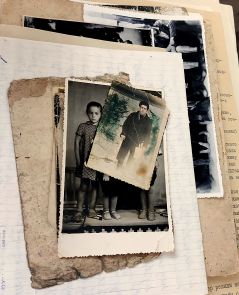 The results of the research will be applied in the elaboration, editing and publication of an international photo-documentary exhibition about the history and memory of children deported by the Soviet regime and the publication of a monograph-album on childhood in the Gulag. The experience and knowledge gained within the project will be disseminated through round tables, book presentations and exhibitions inaugurated in public institutions in the Republic of Moldova and Lithuania, with the active involvement of young generation representatives from Chisinau, Balti, Comrat, Vilnius etc.
The results of the research will be applied in the elaboration, editing and publication of an international photo-documentary exhibition about the history and memory of children deported by the Soviet regime and the publication of a monograph-album on childhood in the Gulag. The experience and knowledge gained within the project will be disseminated through round tables, book presentations and exhibitions inaugurated in public institutions in the Republic of Moldova and Lithuania, with the active involvement of young generation representatives from Chisinau, Balti, Comrat, Vilnius etc.
The project is implemented by The Center of Excellence Institute of Social History ProMemoria, Moldova State University, in cooperation with The National Museum of History of Moldova (Republic of Moldova) and The Genocide and Resistance Research Centre of Lithuania (Republic of Lithuania).
Period of project implementation: 1 May – 31 October 2021.
The project is financed by the funds of the Development Cooperation and Democracy Promotion Programme of the Ministry of Foreign Affairs of the Republic of Lithuania.
The exhibition of The Genocide and Resistance Research Centre of Lithuania was presented in the Parliament of the Republic of Moldova, on 14-19 March 2018
The exhibition under the title „UNDER THE ALIEN SKIES: Lithuanian people in Soviet hard labor camps and exile in 1940-1958” is a tribute to the Lithuanians who have gone through the horrors of deportations, exiles and labour camps, but also a commitment to keep the memory of history alive and the desire to never repeat these atrocities, the exhibition organizers mentioned.
The 20 exhibition’s panels depict the deportation of Lithuanian citizens and their detention in the labour camps. The exhibition contains several materials that were not previously exposed: photographs, documents, letters and personal journals, drawings, and scenes that were shot in secret. The exhibited materials are part of the funds of the Special Archives and of the Lithuanian State Central Archives, the Lithuanian National Museum, the Museum of Deportations, Exile and Resistance in Kaunas, the “Alka” Museum of the Žemaitia Region, the Tauragė Regional Museum, and from the personal archives of many people.
The organizers of the exhibition are the Embassy of the Republic of Lithuania to the Republic of Moldova and the research team of the State Program “The Recovering and Historical Investigation of the Memory of Totalitarian-Communist Regime’s Victims in the Moldavian SSR (1940-1941, 1944-1953)”.
According to official data, in 1941, as well as during the period of 1945-1953, 132.000 people were exiled from Lithuania, and 150.000 people were sent to prisons and labour camps.
This year, Lithuania marks 100 years since Independence. As a sign of solidarity, on 16 February 2018, when Lithuania celebrated its National Day, the building of the Parliament of Moldova was illuminated in the colors of the Lithuanian flag.
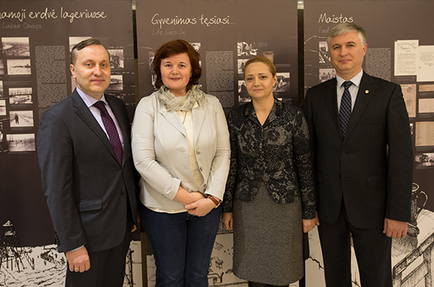
„UNDER THE ALIEN SKIES:
Lithuanian people in Soviet hard labor camps and exile in 1940-1958”
On Tuesday, September 17th, 2017, at 15:00 hours, at the National Museum of History of Moldova was opened the exhibition „UNDER THE ALIEN SKIES: Lithuanian people in Soviet hard labor camps and exile in 1940-1958". The exhibition is organized by the Museum of Genocide Victims from the Genocide and Resistance Research Centre of Lithuania.
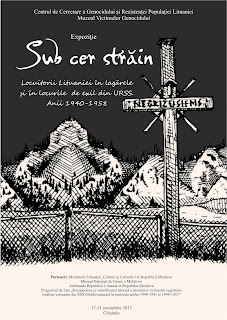 |
The event was organized by the National Museum of History of Moldova in cooperation with the Embassy of the Republic of Lithuania to the Republic of Moldova through the State Program "Recovery and Historical Valorization of the Memory of Victims of the Totalitarian-Communist Regime in the Moldavian SSR in 1940-1953".
At the opening ceremony, moderated by the general director of the National Museum of History of Moldova, Eugen Sava, took the floor: Gheorghe Postică, Deputy Minister of Education, Culture and Research of the Republic of Moldova; Andrei Didenko, Adviser at the Lithuanian Embassy in Chisinau; Eugenijus Peikštenis, director of the Museum of Genocide Victims; Prof. univ. dr. hab. Anatol Petrencu, director of the State Program "Recovery and historical valorization of the memory of the victims of the totalitarian-communist regime in MSSR during the years 1940-1941 and 1944-1953"; Dr. Ludmila Cojocaru, project director of the State Program.
The aim of the exhibition is to tell the citizens of Europe, especially the young generation, about the crimes committed by the Soviet totalitarian regime on the territory of Lithuania. The exhibition was made with documents and materials from the Museums of Genocide Victims, the Special Archive and the Central State Archives of Lithuania from Vilnius, the Lithuanian National Museum, the Museum of Deportations, Exile and Resistance in Kaunas, the Alka Museum from Žemaitia Region and the Regional Museum of Tauragė.
The exhibits tell us about the organization of deportations, arrests with political substrates, the unbearable life of deportees and prisoners in the camps, working and living conditions. The 20 stands, arranged according to the thematic principle, reflect the most diverse aspects of the daily life of deportees and political prisoners: food, clothing, faith, etc. They reveal the differences in living conditions of exiled people compared to political prisoners in the camps. The emotion transmitted by images, letters, and documents related to the conditions of the political prisoners is increased by the motifs of barbed wire, which is obsessively repeated on the stands.
INTERNATIONAL SCIENTIFIC CONFERENCE
“Memory as cultural patrimony in Lithuania and Moldova. Exchange of experience in studying and preservation of memory of the victims of totalitarian regimes and soviet occupation”
Chișinău, 2-3 December 2016
The scientific event was organized by the National Museum of History of Moldova (on the initiative of Museum of Victims of Deportations and Political Repressions), in cooperation with the Museum of Genocide Victims and Research Center on Genocide and Resistance of Lithuania. Cooperation between researchers and experts from Lithuania and Moldova will help create a bilateral scientific platform for the exchange of experience, research and historical valorisation of the period of Sovietization in Lithuania and Moldova, in particular, investigate the repressive mechanisms that ensured the establishment of the totalitarian communist regime.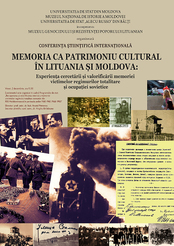
The international scientific conference "Memory as a cultural patrimony in Lithuania and Moldova. Exchange of experience in studying and preservation of memory of the victims of totalitarian regimes and soviet occupation" was held on December 2nd and 3rd, 2016 at the State University of Moldova (Faculty of History and Philosophy) and the National Museum of History of Moldova.
At the conference was signed the bilateral cooperation agreement between the National Museum of History of Moldova and the Center for Research on Genocide and Resistance of Lithuania. Also, there were presented the volumes of "Memory Archives" Series, published within the State Project "Recovery and historical valorisation of memory of the victims of totalitarian communist regime in Soviet Moldova during the years 1940-1941 and 1944-1953."
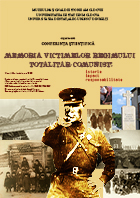
Scientific Conference
THE MEMORY OF THE VICTIMS OF
TOTALITARIAN-COMMUNIST REGIME:
History, Impact, Responsibility
25 November 2016,
National Museum of History of Moldova
The scientific event is conducted within the State Program „Recovery and historical exploration of memory of the victims of totalitarian communist regime in Moldavian SSR during the years 1940-1941, 1944-1953” and reflects the results of scientific work of the research groups involved in projects from the Moldova State University, National Museum of History of Moldova, the State University „B. P. Hasdeu” from Cahul, the State University „Al. Russo” from Bălți. Researchers involved in the State program are invited to present the results and conclusions of scientific research carried out during the first two years of Program activity.
The conference is organized within two Sessions and Conclusions. The event will include the public presentation of volumes „Memory Archives”, published in the frame of State Program „Recovery and historical exploration of memory of the victims of totalitarian communist regime in Moldavian SSR during the years 1940-1941, 1944-1953”. The conference papers will be published in a collection of studies.
The Institute of Social History “ProMemoria”
Press release
On the eve of Victory Day and Commemoration of the Heroes Fallen for the Independence of the Motherland, the Institute of Social History “ProMemoria” makes a call to the authorities of the Republic of Moldova, its political parties and civil society.
Thus:
- Respecting with piety the memory of all the victims of the Second World War, and expressing our profound gratitude to all those who contributed to the victory against Nazism;
- Being aware of the consequences of the Second World War, especially for Eastern Europe, where the end of the war also meant exchanging a Nazi totalitarian regime for Communist totalitarianism;
- Underlining the importance of preserving historical memory and understanding it as part of European history;
- Acknowledging the importance of recognizing the symbolic value of apolitical commemorations in the process of the reconciliation of the society.
We observe and wish to draw attention to:
- The fracturing of society and the deepening of tensions between competing memories, due to the promotion by previous governments of memory policies that derive from Cold War ideologies;
- The necessity to overcome political practices that retrieve from the past ideas of triumphalism, grandeur and Soviet militarism, and that, in certain cases, nourish nostalgia for the empire and re-establish clichés and myths of totalitarian ideology;
- The negative effects of activities that promote symbols which are foreign to our national history and culture, and which might provoke tense discourses and hostile attitudes. The history of the Second World War does not only contain symbols and episodes of glory and victory, but also moments of uncertainty, pain, ambiguity and missed historical opportunities. Only by taking all these aspects into account can we cultivate a respectful attitude and openness towards other versions of history.
- The need to bring back to the public space of the Republic of Moldova ideas of reconciliation by sharing lived experiences and promoting dialogue between representatives of various memory communities. In this case, a sincere exchange of opinions, in which all memory communities should participate and, most importantly, listen to each other with mutual respect, might facilitate the construction of a historical memory that is characteristic of the European space.
May 5, 2011
28.10.2011
International Scientific Conference
TERROR AND RESISTANCE: HISTORY AND MEMORY OF STALINISM
IN EASTERN EUROPE
Friday, 28 October 2011, the Institute of Social History “ProMemoria” in cooperation with the Chisinau City Hall organized the International Scientific Conference "Terror and Resistance: History and Memory of Stalinism in Eastern Europe".
21.10.2011
Friday, 21 October 2011, the Institute of Social History "ProMemoria", MSU in cooperation with the State Pedagogical University "Ion Creanga" and the National Association of Young Historians held
The Inter-University Round-Table
200 YEARS OF THE ANNEXATION OF BESSARABIA BY THE TSARIST EMPIRE: CONSEQUENCES OF TERRITORIAL RAPT FOR THE BESSARABIAN ROMANIANS
09.09.2011
Friday, 9 September 2011, the Institute of Social History "ProMemoria" organised the public lecture "Византийское наследие": Существует ли связь между историческим геокультурным выбором и современным цивилизационным статусом? (”Byzantine Heritage": Is there a Relationship between the Historical Geo-Cultural Option and Contemporary Civilizational Status?) by dr. Aleh Dziarnovich, researcher at the Institute of History of the Academy of Sciences of Belarus.
For details see ...
08.07.2011
Friday, 8 July 2011, for essential contributions in elucidating the phenomenon of communism and anti-human policies promoted by the communist totalitarian regimes, the Professor Stéphane Courtois (France) was offered the honorary degree Doctor Honoris Causa by the Senate of Free International University of Moldova.
Professor Stéphane Courtois is one of the most valuable researchers in studying the history of communism and its manifestations. He is the author of hundreds of studies devoted to this issue and one of the main protagonists of The Black Book of Communism: Crimes, Terror, Repression, translated into 25 languages of the world in a circulation of more than one million copies. Courtois is a research director at the French National Centre for Scientific Research at Paris West University Nanterre La Défense, as well as a Professor at the Catholic Institute of Higher Studies. He is editor of the journal Communisme, founded in 1982.
The ceremony was followed by a Press Conference organized by the International University of Moldova and the Institute of Social History "ProMemoria".
For details see ...
07. 06. 2011
The International Session of Communications
FAMILY HISTORY IN DOCUMENTS, OLD BOOKS, AND LITHOGRAPHS
Tuesday, June 7 2011, the Institute of Social History “ProMemoria” in cooperation with the National Library of Moldova and the Group of Historical Anthropology of the Institute of History, State and Law of the ASM organised the International Session on “Family History in Documents, Old Books, and Lithographs”.
The purpose of the International Session was to bring to the attention of researchers and public opinion an insufficiently studied problem in the Republic of Moldova - the family history in the context of new historiographical trends and new research directions, especially from the approach of historical anthropology.
During the International Session was organised the launch of two books:
1) Igor CERETEU, Cartea românească veche şi modernă în fonduri din Chişinău. Catalog, Iaşi, Editura Tipo Moldova, 2011
2) Anatol PETRENCU, Istoria contemporană: Studii, materiale, atitudini, Chişinău,
Editura Cartdidact, 2011.
11.06.2011
The Scientific Conference
THE MASS DEPORTATIONS FROM THE MOLDAVIAN SSR, 13-16 JUNE 1941
Saturday, June 11 2011, the Institute of Social History “ProMemoria” in cooperation with the National Library of Moldova organized the Scientific Conference “The Mass Deportations from the Moldavian SSR, 13-16 June 1941”.
See details ...
21.05.2011
Roundtable
MEMORY OF THE DNIESTER CONFLICT:
FORGIVENESS AND RECONCILIATION THROUGH CHRISTIAN FAITH
Saturday, May 21 2011, the Institute of Social History "ProMemoria" in cooperation with the Association of War Veterans from the Republic of Moldova (1992), and the Monastery „Noul Neamț” from the village of Chițcani organized the Roundtable “Memory of the Dniester Conflict: Forgiveness and Reconciliation through Christian Faith”.
This meeting aims to bring into the public attention from the Republic of Moldovan the idea of reconciliation of the Moldovan society through the Christian faith and forgiveness. In order to offer an appropriate framework for the discussions between representatives of academic, university and civil society milieus from both sides of the River Dniester, the organizers planned to develop this Roundtable at the Monastery „Noul Neamț” from the village of Chițcani - a monastic centre of high religious and historical culture.
Asserting the existence of only one historical truth, we accept the existence of consensual views or even divergent opinions regarding this historical truth. The mutual exchange of views in spirit of understanding and openness toward reconciliation on behalf of both parts involved in the Dniester conflict can contribute to their appropriation and thus to restore the confidence of the citizens of the Republic of Moldova in the reintegration of the country. The Christian faith and forgiveness can be the key elements toward the reconciliation with the traumatic past of the Dniester conflict.
